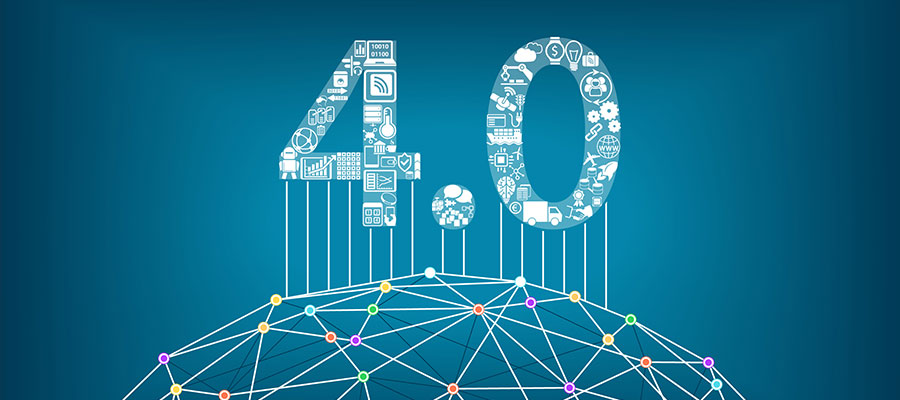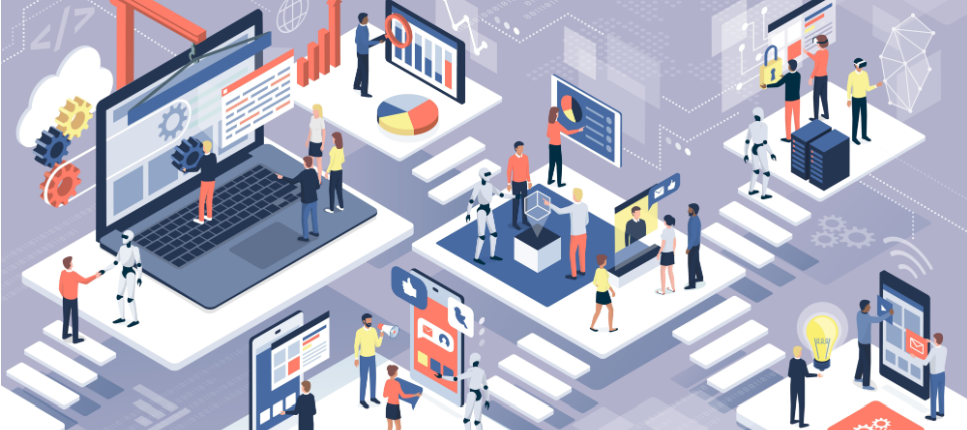Industry 4.0 is the next major industrial era. For context, the use of steam to power machinery brought the first industrial age, followed by mass production and assembly lines in the second and finally computer and automation in today’s industrial era. The fourth era is about connected, data-exchanging smart plants and machines. This will allow dynamic, sensor-driven process changes on a production line in a much more closed-loop fashion.
Industry 4.0 was born in 2012 as a set of recommendations presented to the German government and is now common throughout Europe. Although less known in North America, the concept is seeing growing interest in wood, plastic molding, automobile and industrial automation conferences in Canada and the U.S.
Some of the benefits expected from Industry 4.0 are optimized energy consumption, greater traceability from input to output (particularly interesting for the agro-food sector), better machine health data driving preventive maintenance, greater integration amongst value-chain suppliers (think aerospace or auto manufacturing), more product customization and many more.
The new worker skillset
While Industry 4.0 is about greater technological integration and data analytics driving production, the question is how will it impact tomorrow’s workforce in terms of required skillsets. This could be the greatest challenge. Recent findings from pwc indicate that “The absence of a digital culture and the right training was identified as the single biggest challenge by aerospace, defense, and security companies. Over half (55%) put it in their top three challenges”. Meanwhile, the Boston Group states that “a significant shift in the skill profile is required to enable growth”.
Three skill sets I believe will be required are:
- Adapting to and making sense of greater communication amongst machines in a production line
- Industrial data analytics (requiring a good foundation in math and statistical/analytical software)
- Understanding and managing advanced Information Technology in the plant (such as Machine to Machine protocols, Wi-Fi and cell networks and their security, real-time data processing, etc.)
Note that some of these are higher order thinking skills (making sense, analyzing and interpreting data) compared to skills such as remembering and applying a procedure. The net effect of Industry 4.0 is the displacement of lower skilled labor in favor of a workforce capable of monitoring, managing and optimizing integrated smart manufacturing cells.
Augmenting these skills befalls not only to the industry itself but also to technical college and university programs, which will have to keep up with these advances.
Technology itself can help training these new skillsets. Consider a virtual plant environment where the learner can interrogate every smart machine with actual plant data, interpret information and make decisions. These are then applied to the plant simulation in which various production scenarios are tested and experienced. Training simulators like these already exist and are becoming more affordable. They provide a safe and rich learning ground for plant and process operators and their supervisors.
Great challenges and opportunities await.
Author:
Guillaume Perron
Chief Commercial Officer @KnowledgeOne. Evangelist. Nerd dad. Dark chocolate benefactor. Physical limits stretcher.







Leave A Comment